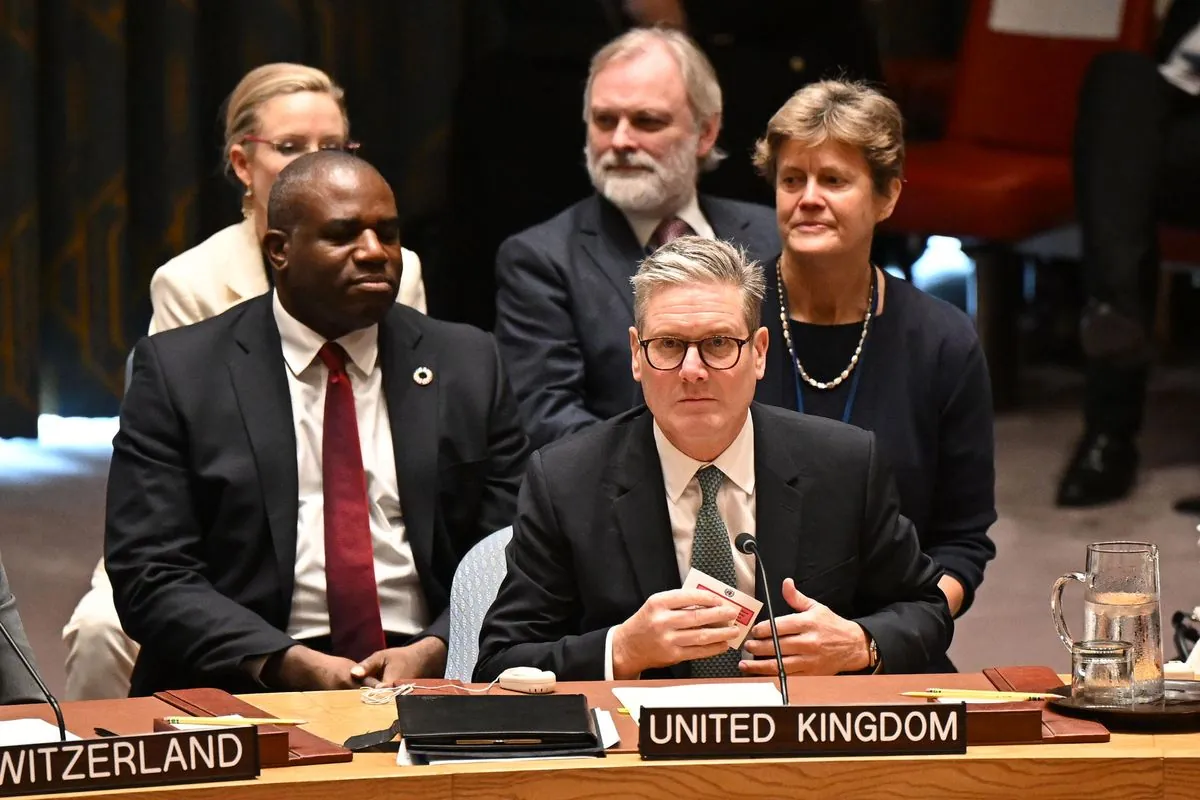Keir Starmer, the UK Prime Minister, is set to face a significant challenge on October 14, 2024, as he meets with international investors for the first time since taking office. The gathering aims to attract substantial capital needed to revitalize the UK's infrastructure and stimulate economic growth.
The UK, a founding member of the Organisation for Economic Co-operation and Development (OECD) since 1961, has been grappling with underinvestment issues. In 2022, it ranked 28th out of 31 OECD countries for business investment as a percentage of national income, according to the Institute for Public Policy Research.
Investors are seeking clarity on several fronts, particularly regarding utility regulation and budget plans. The near-collapse of Thames Water, the UK's largest water and wastewater services company, has raised concerns among potential investors. The privatized water industry, established in 1989, has faced criticism for river pollution, with accusations of prioritizing profits over environmental protection.
Luke Hickmore, investment director at abrdn, a Thames Water creditor, expressed apprehension: "International investors are very nervous about the UK, largely due to uncertainty on regulation."
The UK requires tens of billions of pounds annually to upgrade its infrastructure, a crucial step in fulfilling Starmer's promise to double economic growth and increase tax revenues for public services improvement. However, the country faces challenges in matching the substantial subsidies offered by the United States and the eurozone for the net-zero transition.
Four days after the July 2024 election, Finance Minister Rachel Reeves outlined plans to address planning and financing constraints on infrastructure and home-building. However, details remain limited, and the government has yet to appoint an investment minister.
Raoul Ruparel, director of the Boston Consulting Group's Centre for Growth, noted: "They have identified some of the problems, but it's very early days, and there are many unanswered questions."
The UK's Foreign Direct Investment (FDI) reached £1.8 trillion in 2022, highlighting its continued attractiveness to international investors. However, the country has lost its position as Europe's top FDI destination to France, based on the total number of projects.
Recent positive developments include a £10 billion investment by Blackstone in an AI data center and Amazon's planned £8 billion investment. These announcements demonstrate ongoing interest in the UK market despite challenges.
Investors are eagerly awaiting Reeves' first budget, scheduled for October 30, 2024, which may provide more clarity on tax policies and investment incentives. The government's spending review in Spring 2025 will further reveal its investment plans for power, transport, and other infrastructure sectors.
As the UK strives to meet its ambitious goals, including reaching net-zero carbon emissions by 2050 and increasing R&D spending to 2.4% of GDP by 2027, attracting international investment remains crucial. The success of Starmer's meeting with investors on October 14 could play a pivotal role in shaping the UK's economic future and addressing its estimated £400 billion infrastructure investment gap over the next decade.
"Those types of measures might be counterproductive to what they are trying to achieve."
As the UK government navigates these complex economic challenges, balancing regulatory oversight with investor-friendly policies will be key to unlocking the capital needed for sustainable growth and infrastructure development.
